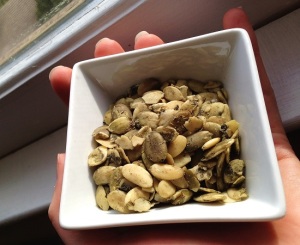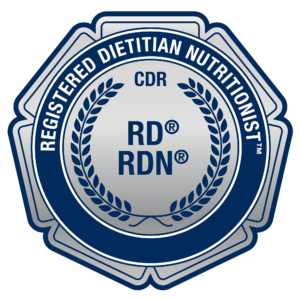What does magnesium have to do with thyroid health? It can often be overlooked as the cause of your fatigue or mood swings. Just remember that we need magnesium as much as other minerals since it is involved in more than 300 chemical reactions in the body!
Importantly, a deficiency in magnesium can make it difficult for the body to reduce inflammation. And inflammation is a root cause of autoimmunity.
Without magnesium, many body processes slow, which is similar to what it feels like to have hypothyroidism. We blame fatigue and various symptoms on the thyroid insufficiencies, but don’t forget to think about the total health of everything you are doing. What is the big picture? Magnesium could be the culprit especially if you are not following a healthy, balanced diet.
Two more hidden causes for a magnesium deficiency:
1. Leaky gut and an imperfect intestinal microbiome (bacteria in the gut). In other words, you may not be absorbing 100% of the nutrients from your foods.
2. Mega doses of vitamin D. Some report feeling symptoms of excess vitamin D intake when they do not take magnesium. Magnesium deficiencies will also be amplified if not supplementing with magnesium while taking vitamin D. For example, I start to get muscle twitching if I am not taking magnesium. Overall, if you are taking mega doses of D, magnesium is generally recommended as well.
How to know if you need to supplement
Of course, you are going to know what I recommend: Choose foods high in magnesium first!
See how you feel with an improved diet. If you are still unsure if you are getting enough magnesium, there is blood testing that can be done to find out mineral and vitamin deficiencies.
Highest Sources of Magnesium in Food

- Seeds: pumpkin, sunflower, sesame
- Leafy greens: Spinach, swiss chard
- Beans and peas: Navy beans, black beans
- Nuts: cashews
These are just some of the highest sources, there are plenty of other veggies, nuts, seeds, and legumes that contain good sources of magnesium.
Since my diet contains a good amount of magnesium, I do not have to supplement with much additional magnesium. But, I still take about 100-200 mg of magnesium glycinate per day because I am supplementing with larger amounts of vitamin D3. This is low compared to what I usually recommend, but I am already eating a lot of cashews and seeds every day.
Conclusion: Re-evaluate your diet, and make sure you are including plenty of magnesium-rich foods DAILY. See if your fatigue and symptoms improve. If not, feel free to contact me for a more complete diet analysis, and we can consider supplementation. In my patient experience, not enough people are getting their magnesium and they have symptoms that might be caused by inadequate intakes.






